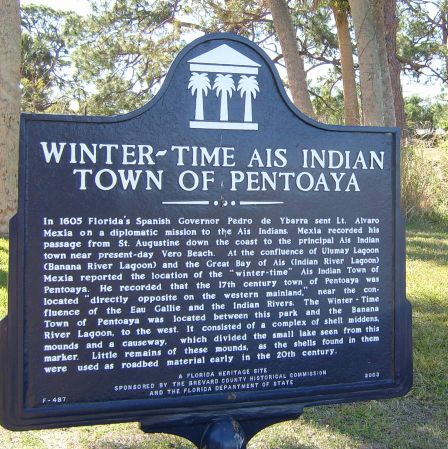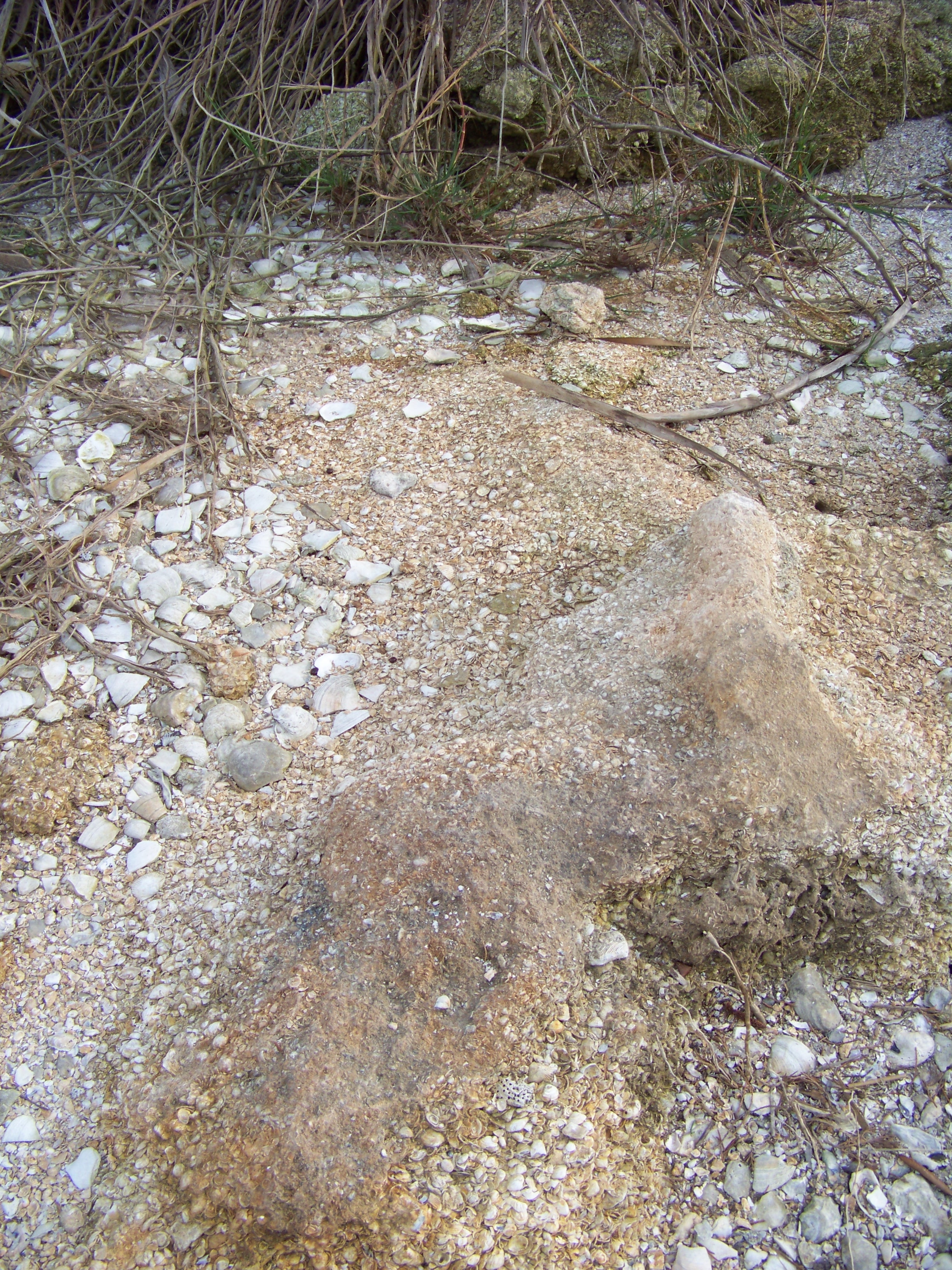|
ûlvaro MexûÙa
Alvaro Mexia was a 17th-century Spain, Spanish explorer and cartography, cartographer of the east coast of Florida. Mexia was stationed in St. Augustine, Florida, St Augustine and was given a diplomatic mission to the Indigenous peoples of Florida, native populations living south of St. Augustine and in the Cape Canaveral, Florida, Cape Canaveral area. This mission resulted in a "Period of Friendship" between the Spanish and the Ais (tribe), Ais native population. When Pedro de Ibarra (governor of La Florida), Pedro de Ibarra became the Spanish Governor of Florida, he knew the Spanish needed to improve relations with the natives, so he sent Mexia on a diplomatic mission in Timeline of Florida History, 1605 to gain knowledge of the lands and populations south of St. Augustine, as well as to assist that year's treasure fleet on its way back to Spain. Mexia wrote about his experiences among the native Ais (tribe), Ais in a document known as a ''Derrotero'', a self-proclaimed "truthf ... [...More Info...] [...Related Items...] OR: [Wikipedia] [Google] [Baidu] |
Diego De Landa
Diego de Landa Calderû°n, O.F.M. (12 November 1524 – 29 April 1579) was a Spanish Franciscan bishop of the Roman Catholic Archdiocese of YucatûÀn. He led a campaign against idolatry and human sacrifice.Timmer, 480 In doing so, he burned Maya manuscripts (codices) which contained knowledge of Maya religion and civilization, and the history of the American continent. Nonetheless, his work in documenting and researching the Maya was indispensable in achieving the current understanding of their culture, to the degree that Mayanist William Gates asserted that "ninety-nine percent of what we today know of the Mayas, we know as the result either of what Landa has told us in the pages that follow, or have learned in the use and study of what he told". He also described that "it is an equally safe statement that...he burned ninety-nine times as much knowledge of Maya history and sciences as he has given us". Conversion of Maya Born in Cifuentes, Guadalajara, Spain, he became a ... [...More Info...] [...Related Items...] OR: [Wikipedia] [Google] [Baidu] |
Explorers Of Florida
Exploration is the process of exploring, an activity which has some expectation of discovery. Organised exploration is largely a human activity, but exploratory activity is common to most organisms capable of directed locomotion and the ability to learn, and has been described in, amongst others, social insects foraging behaviour, where feedback from returning individuals affects the activity of other members of the group. Types Geographical Geographical exploration, sometimes considered the default meaning for the more general term exploration, is the practice of discovering lands and regions of the planet Earth remote or relatively inaccessible from the origin of the explorer. The surface of the Earth not covered by water has been relatively comprehensively explored, as access is generally relatively straightforward, but underwater and subterranean areas are far less known, and even at the surface, much is still to be discovered in detail in the more remote and inaccessib ... [...More Info...] [...Related Items...] OR: [Wikipedia] [Google] [Baidu] |
17th-century Spanish Explorers
The 17th century lasted from January 1, 1601 (represented by the Roman numerals MDCI), to December 31, 1700 (MDCC). It falls into the early modern period of Europe and in that continent (whose impact on the world was increasing) was characterized by the Baroque cultural movement, the latter part of the Spanish Golden Age, the Dutch Golden Age, the French ''Grand Siû´cle'' dominated by Louis XIV, the Scientific Revolution, the world's first public company and megacorporation known as the Dutch East India Company, and according to some historians, the General Crisis. From the mid-17th century, European politics were increasingly dominated by the Kingdom of France of Louis XIV, where royal power was solidified domestically in the civil war of the Fronde. The semi-feudal territorial French nobility was weakened and subjugated to the power of an absolute monarchy through the reinvention of the Palace of Versailles from a hunting lodge to a gilded prison, in which a greatly expanded r ... [...More Info...] [...Related Items...] OR: [Wikipedia] [Google] [Baidu] |
Seville
Seville ( ; , ) is the capital and largest city of the Spain, Spanish autonomous communities of Spain, autonomous community of Andalusia and the province of Seville. It is situated on the lower reaches of the Guadalquivir, River Guadalquivir, in the southwest of the Iberian Peninsula. Seville has a municipal population of about 701,000 , and a Seville metropolitan area, metropolitan population of about 1.5 million, making it the largest city in Andalusia and the List of metropolitan areas in Spain, fourth-largest city in Spain. Its old town, with an area of , contains a UNESCO World Heritage Site comprising three buildings: the AlcûÀzar of Seville, AlcûÀzar palace complex, the Seville Cathedral, Cathedral and the General Archive of the Indies. The Seville harbour, located about from the Atlantic Ocean, is the only river port in Spain. The capital of Andalusia features hot temperatures in the summer, with daily maximums routinely above in July and August. Seville was founded ... [...More Info...] [...Related Items...] OR: [Wikipedia] [Google] [Baidu] |
General Archive Of The Indies
The ''Archivo General de Indias'' (; standard abbreviation AGI; ), often simply called the Archive of the Indies, was created by Carlos III of Spain, Carlos III and inaugurated in 1785. It is housed in the former Consulado de mercaderes, merchant guild building in Seville, Spain, built in the late 16th century. It became the repository of archival materials documenting the history of the Spanish Empire in the Americas and Asia. The building was designed by Juan de Herrera; it is an Italianate example of Spanish Renaissance architecture. This structure and its contents were registered in 1987 by UNESCO as a World Heritage Site, together with the adjoining Seville Cathedral and the AlcûÀzar of Seville. Structure The origin of the structure dates to 1572 when Philip II of Spain, Philip II commissioned the building design from Juan de Herrera, the architect of the Escorial to house the Consulado de mercaderes of Seville. Until then, the merchants of Seville had been in the habit of ... [...More Info...] [...Related Items...] OR: [Wikipedia] [Google] [Baidu] |
Merritt Island, Florida
Merritt Island is a peninsula, commonly referred to as an island, in Brevard County, Florida, United States, located on the eastern Florida coast, along the Atlantic Ocean. It is also the name of an unincorporated town in the central and southern parts of the island and a census-designated place (CDP). The population was 34,518 at the 2020 census, down from 34,743 at the 2010 census. It is part of the Palm Bay ã Melbourne ã Titusville, Florida Metropolitan Statistical Area, Palm BayãMelbourneãTitusville, Florida Metropolitan Statistical Area. NASA's John F. Kennedy Space Center is located on Merritt Island to the north of the town, and Merritt Island National Wildlife Refuge is located north of the space center. The central part of Merritt Island, previously known as Merritt City, is home to the majority of the population and includes the local high school, library, and shopping district. The southern area is heavily residential, with centralized light commerce, comm ... [...More Info...] [...Related Items...] OR: [Wikipedia] [Google] [Baidu] |
Banana River
The Banana River is a lagoon that lies between the outer barrier islands and Merritt Island in Brevard County, Florida in the United States. It is part of the Indian River Lagoon system, and connects at its south end to the Indian River; it is the only part of the lagoon system not in the Intracoastal Waterway. It also has an outlet to the Atlantic Ocean via a lock into Port Canaveral. The lagoon includes salt marshes, mangrove swamps, seagrass beds, drift algae, oyster bars, tidal flats, and spoil islands, providing habitats for many marine species. These are brackish waters mixed of salt and fresh water; waist deep with a soft bottom sand/grass. Commercial and recreational activities in the lagoon generate more than US$800 million annually for the local economy. Historically, the Banana River was a continuous waterway that completely separated Merritt Island from Cape Canaveral (which was considered part of the mainland until the construction of the Haulover Canal) ... [...More Info...] [...Related Items...] OR: [Wikipedia] [Google] [Baidu] |
Haulover Canal
The Haulover Canal is a waterway north of Merritt Island, Florida, near the former site of Allenhurst, that connects Mosquito Lagoon with the Indian River, and is part of the Intracoastal Waterway. In the early 1960s there were plans to relocate the canal further north, near the junction of US 1 and Courtenay Parkway, but by 1964 when the new Haulover Canal Bridge was constructed these plans had been shelved."Haulover Bridge Contract Let" '''', 3 October 1964 Crossings Old Haulover Canal The Old Haulover Canal is a historic location n ...[...More Info...] [...Related Items...] OR: [Wikipedia] [Google] [Baidu] |
New Smyrna, Florida
New Smyrna Beach is a city in Volusia County, Florida, United States, located on the central east coast of the state, with the Atlantic Ocean to the east. The downtown section of the city is located on the west side of the Indian River and the Indian River Lagoon system. The Coronado Beach Bridge crosses the Intracoastal Waterway just south of Ponce de Leon Inlet, connecting the mainland with the beach on the coastal barrier island. The population was 30,142 at the 2020 census; according to 2023 census estimates, the city is estimated to have a population of 32,655. The surrounding area offers many opportunities for outdoor recreation; these include fishing, sailing, motorboating, golfing, and hiking. Visitors participate in water sports of all kinds, including swimming, scuba diving, kitesurfing, and surfing. In July 2009, New Smyrna Beach was ranked number nine on the list of "best surf towns" in '' Surfer.'' It was recognized as one of the "world's top 20 surf towns" by '' ... [...More Info...] [...Related Items...] OR: [Wikipedia] [Google] [Baidu] |
Nocoroco
Nocoroco is the site of a Timucuan village located on the Tomoka River, in Tomoka State Park. The park is located two or three miles north of Ormond Beach, Florida on North Beach Street. History Approximately seven thousand years ago, during the Archaic Period, indigenous people found plentiful fish and shellfish at this site in the shelter of a barrier island to the east. The site was inhabited approximately twelve hundred years ago by the Timucuans, whose descendants were discovered there by Europeans. Alvaro Mexia visited Nocoroco in 1605, just as European acculturation had begun. Mexia's expedition explored down the east coast of Florida at the behest of the Spanish governor. This late St. Johns period site represents one of the last Timucuan strongholds in northeastern Florida. The only traces of these native peoples are the shell middens, which help modern archaeologists document their lives. The British occupation began in 1763 when Great Britain received Florida ... [...More Info...] [...Related Items...] OR: [Wikipedia] [Google] [Baidu] |
Spain
Spain, or the Kingdom of Spain, is a country in Southern Europe, Southern and Western Europe with territories in North Africa. Featuring the Punta de Tarifa, southernmost point of continental Europe, it is the largest country in Southern Europe and the fourth-most populous European Union member state. Spanning across the majority of the Iberian Peninsula, its territory also includes the Canary Islands, in the Eastern Atlantic Ocean, the Balearic Islands, in the Western Mediterranean Sea, and the Autonomous communities of Spain#Autonomous cities, autonomous cities of Ceuta and Melilla, in mainland Africa. Peninsular Spain is bordered to the north by France, Andorra, and the Bay of Biscay; to the east and south by the Mediterranean Sea and Gibraltar; and to the west by Portugal and the Atlantic Ocean. Spain's capital and List of largest cities in Spain, largest city is Madrid, and other major List of metropolitan areas in Spain, urban areas include Barcelona, Valencia, Seville, ... [...More Info...] [...Related Items...] OR: [Wikipedia] [Google] [Baidu] |






